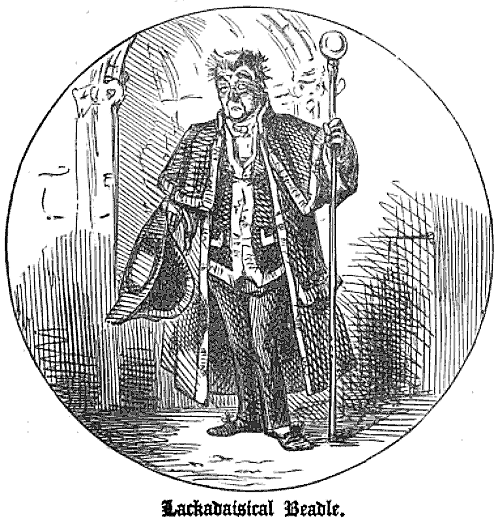|
Gabbai
A ''gabbai'' ( he, גבאי), also known as ''shamash'' (, sometimes spelled ''shamas'') or warden ( UK, similar to churchwarden) is a beadle or sexton, a person who assists in the running of synagogue services in some way. The role may be undertaken on a voluntary or paid basis. A ''shamash'' (literally 'servant') or ''gabbai'' can also mean an assistant to a rabbi (particularly the secretary or personal assistant to a Hasidic rebbe). In ma'amad, the Council of Elders (or "the board of directors") of the communities of Sephardi Jews, the position of ''gabbai'' was that of the treasurer. Etymology The word ''gabbai'' is Hebrew and, in Talmudic times, meant "collector of taxes or charity" or "treasurer". The term ''shamash'' is sometimes used for the ''gabbai'', the caretaker or "man of all work" in a synagogue. Duties While the specific set of duties vary from synagogue to synagogue, a gabbai's responsibilities will typically include ensuring that the religious services run ... [...More Info...] [...Related Items...] OR: [Wikipedia] [Google] [Baidu] |
Rebbe
A Rebbe ( yi, רבי, translit=rebe) or Admor ( he, אדמו״ר) is the spiritual leader in the Hasidic movement, and the personalities of its dynasties.Heilman, Samuel"The Rebbe and the Resurgence of Orthodox Judaism."''Religion and Spirituality (Audio)''. UCTV, 20 Oct 2011. web. 31 Jul 2013. The titles of Rebbe and Admor, which used to be a general honor title even before the beginning of the movement, became, over time, almost exclusively identified with its Tzaddikim. Terminology and origin Usage Today, ''rebbe'' is used in the following ways: # Rabbi, a teacher of Torah – Yeshiva students or ''cheder'' (elementary school) students, when talking to their teacher, would address him with the honorific ''Rebbe'', as the Yiddish-German equivalent to the Hebrew word ''rabbi'' ( ' ). # Personal mentor and teacher—A person's main Rosh Yeshiva, Yeshiva teacher, or mentor, who teaches him or her Talmud and Torah and gives religious guidance, is referred to as ''rebbe'' () ... [...More Info...] [...Related Items...] OR: [Wikipedia] [Google] [Baidu] |
Torah Reading
Torah reading (; ') is a Judaism, Jewish religion, religious tradition that involves the public reading of a set of passages from a Sefer Torah, Torah scroll. The term often refers to the entire ceremony of removing the scroll (or scrolls) from the Torah ark, chanting the appropriate excerpt with special Hebrew cantillation, cantillation (trope), and returning the scroll(s) to the ark. It is also commonly called "laining" (''lein'' is also spelt ''lain'', ''leyn'', ''layn''; from the Yiddish , which means "to read"). Regular public reading of the Torah was introduced by Ezra the Scribe after the return of the Judean exiles from the Babylonian captivity ( BCE), as described in the Book of Nehemiah. In the modern era, Orthodox Judaism, Orthodox Jews practice Torah reading according to a set procedure almost unchanged since the Talmud, Talmudic era. Since the 19th century CE, Reform Judaism, Reform and Conservative Judaism, Conservative Judaism have made adaptations to the practic ... [...More Info...] [...Related Items...] OR: [Wikipedia] [Google] [Baidu] |
Beadle
A beadle, sometimes spelled bedel, is an official of a church or synagogue who may usher, keep order, make reports, and assist in religious functions; or a minor official who carries out various civil, educational, or ceremonial duties on the manor. The term has pre-Conquest origins in Old English, deriving from the Old English ''bydel'' ("herald, messenger from an authority, preacher"), itself deriving from ''beodan'' ("to proclaim", which has a modern descendant in the English verb ''bid''). In Old English it was a title given to an Anglo-Saxon officer who summoned householders to council. It is also known in Medieval Latin as ''bedellus''. The Domesday Book refers to Beadles as ''bedelli'' or undersheriffs of manors. In religion In England, the word came to refer to a parish constable of the Anglican Church, one often charged with duties of charity. A famous fictional constabulary beadle is Mr. Bumble from Charles Dickens's classic novel '' Oliver Twist'', who overs ... [...More Info...] [...Related Items...] OR: [Wikipedia] [Google] [Baidu] |
Ma'amad
Ma'amad or Mahamad ( he, מעמד) was Council of Elders (or "the board of directors") of the communities of Sephardi Jews ( Spanish-Portuguese Jews) corresponding to ''qahal'' of the Ashkenazi Jews. Ma'amad was described as extremely conservative and authoritarian. Gotthard Deutsch, Max SchloessingerMAHAMAD (more correctly MA'AMAD from ''Jewish Encyclopedia'' In Talmud (Ta'an. 15b:3), the term referred to the "members of the priestly watch" in charge of the Temple service. The Council consisted of four wardens (''parnassim'') and a treasurer (''gabbai''), and its members were elected, actually, coopted, from the "yeḥidim", those who had full rights of membership in the synagogue. The ma'amad of the Spanish-Portuguese of London was satirized by Israel Zangwill in ''The King of Schnorrers The King of Schnorrers is Israel Zangwill's 1894 picaresque novel,Milton Hindus,The King of Schnorrers, by Israel Zangwill, ''Commentary'', March 1954 a collection of amusing tragicomic epi ... [...More Info...] [...Related Items...] OR: [Wikipedia] [Google] [Baidu] |
Titles
A title is one or more words used before or after a person's name, in certain contexts. It may signify either generation, an official position, or a professional or academic qualification. In some languages, titles may be inserted between the first and last name (for example, ''Graf'' in German, Cardinal in Catholic usage (Richard Cardinal Cushing) or clerical titles such as Archbishop). Some titles are hereditary. Types Titles include: * Honorific titles or styles of address, a phrase used to convey respect to the recipient of a communication, or to recognize an attribute such as: ** Imperial, royal and noble ranks ** Academic degree ** Social titles, prevalent among certain sections of society due to historic or other reasons. ** Other accomplishment, as with a title of honor * Title of authority, an identifier that specifies the office or position held by an official Titles in English-speaking areas Common titles * Mr. – Adult man (regardless of marital status) * Ms ... [...More Info...] [...Related Items...] OR: [Wikipedia] [Google] [Baidu] |
Religious Leadership Roles
Religion is usually defined as a social-cultural system of designated behaviors and practices, morals, beliefs, worldviews, texts, sanctified places, prophecies, ethics, or organizations, that generally relates humanity to supernatural, transcendental, and spiritual elements; however, there is no scholarly consensus over what precisely constitutes a religion. Different religions may or may not contain various elements ranging from the divine, sacred things, faith,Tillich, P. (1957) ''Dynamics of faith''. Harper Perennial; (p. 1). a supernatural being or supernatural beings or "some sort of ultimacy and transcendence that will provide norms and power for the rest of life". Religious practices may include rituals, sermons, commemoration or veneration (of deities or saints), sacrifices, festivals, feasts, trances, initiations, funerary services, matrimonial services, meditation, prayer, music, art, dance, public service, or other aspects of human culture. Religions have sa ... [...More Info...] [...Related Items...] OR: [Wikipedia] [Google] [Baidu] |
Jewish Religious Occupations
Jews ( he, יְהוּדִים, , ) or Jewish people are an ethnoreligious group and nation originating from the Israelites Israelite origins and kingdom: "The first act in the long drama of Jewish history is the age of the Israelites""The people of the Kingdom of Israel and the ethnic and religious group known as the Jewish people that descended from them have been subjected to a number of forced migrations in their history" and Hebrews of historical Israel and Judah. Jewish ethnicity, nationhood, and religion are strongly interrelated, "Historically, the religious and ethnic dimensions of Jewish identity have been closely interwoven. In fact, so closely bound are they, that the traditional Jewish lexicon hardly distinguishes between the two concepts. Jewish religious practice, by definition, was observed exclusively by the Jewish people, and notions of Jewish peoplehood, nation, and community were suffused with faith in the Jewish God, the practice of Jewish (religious) la ... [...More Info...] [...Related Items...] OR: [Wikipedia] [Google] [Baidu] |
Elie Wiesel
Elie Wiesel (, born Eliezer Wiesel ''Eliezer Vizel''; September 30, 1928 – July 2, 2016) was a Romanian-born American writer, professor, political activist, Nobel Peace Prize, Nobel laureate, and Holocaust survivor. He authored Elie Wiesel bibliography, 57 books, written mostly in French and English, including ''Night (memoir), Night'', a work based on his experiences as a Jewish prisoner in the Auschwitz and Buchenwald concentration camps. He was a professor of the humanities at Boston University, which created the Elie Wiesel Center for Jewish Studies in his honor. He was involved with Jewish causes and human rights causes and helped establish the United States Holocaust Memorial Museum in Washington, D. C. In his political activities, he also campaigned for victims of oppression in places like South Africa, Nicaragua, Kosovo, and War in Darfur, Sudan. He publicly condemned the 1915 Armenian genocide and remained a strong defender of human rights during his lifetime. He was ... [...More Info...] [...Related Items...] OR: [Wikipedia] [Google] [Baidu] |
Night (memoir)
''Night'' is a 1960 memoir by Elie Wiesel based on his Holocaust experiences with his father in the Nazi Germany, Nazi German concentration camps at Auschwitz concentration camp, Auschwitz and Buchenwald concentration camp, Buchenwald in 1944–1945, toward the end of the Second World War in Europe. In just over 100 pages of sparse and fragmented narrative, Wiesel writes about the death of God and his own increasing disgust with humanity, reflected in the inversion of the parent–child relationship as his father deteriorates to a helpless state and Wiesel becomes his resentful, teenage caregiver. "If only I could get rid of this dead weight ... Immediately I felt ashamed of myself, ashamed forever." In ''Night'' everything is inverted, every value destroyed. "Here there are no fathers, no brothers, no friends", a Kapo (concentration camp), kapo tells him. "Everyone lives and dies for himself alone." Wiesel was 16 when Buchenwald was liberated by the United States Army ... [...More Info...] [...Related Items...] OR: [Wikipedia] [Google] [Baidu] |
Canonicals
The adjective canonical is applied in many contexts to mean "according to the canon" the standard, rule or primary source that is accepted as authoritative for the body of knowledge or literature in that context. In mathematics, "canonical example" is often used to mean "archetype". Science and technology * Canonical form, a natural unique representation of an object, or a preferred notation for some object Mathematics * * Canonical coordinates, sets of coordinates that can be used to describe a physical system at any given point in time * Canonical map, a morphism that is uniquely defined by its main property * Canonical polyhedron, a polyhedron whose edges are all tangent to a common sphere, whose center is the average of its vertices * Canonical ring, a graded ring associated to an algebraic variety * Canonical injection, in set theory * Canonical representative, in set theory a standard member of each element of a set partition Differential geometry * Canonical one-form, ... [...More Info...] [...Related Items...] OR: [Wikipedia] [Google] [Baidu] |






